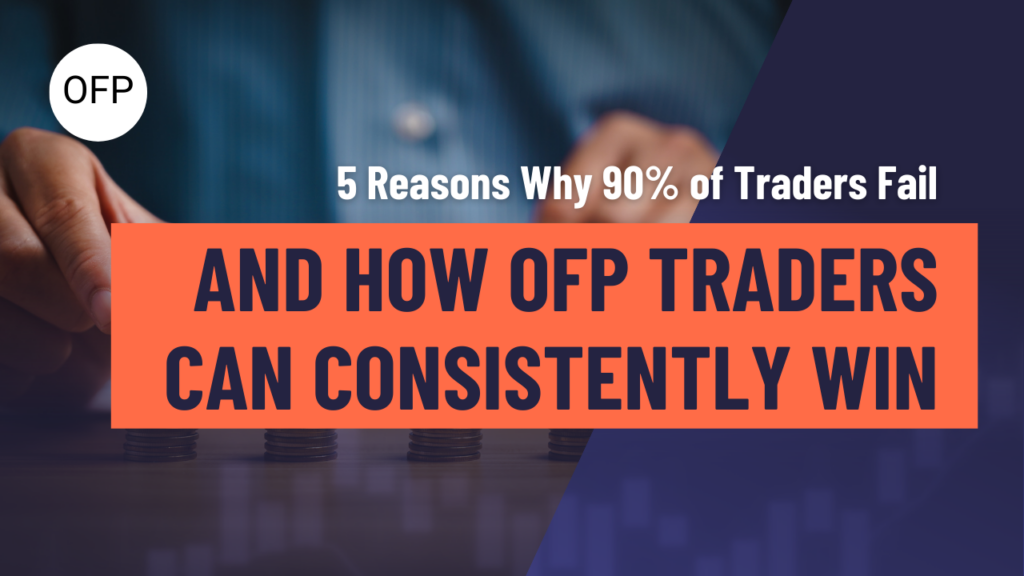Bill Gates and Warren Buffett agree that Charlie Munger is the most intelligent person they know. Charlie Munger once said that problems frequently become easier to solve if you turn them around in reverse. Unless you are more intelligent than Einstein, inversion will help you solve problems. Let’s see how to use it: Why do 90% of traders lose money? To answer this question we need to ask ourselves what 90% of traders are doing to lose money. Let’s delve into this mystery and try to solve it.
Why 90% of Traders Lose Money and Fail by Buying Breakouts and Selling Breakdowns
Most of them are buying breakouts and selling breakdowns. They are chasing stock prices around, which means they are using the wrong strategy to succeed. It’s crucial to choose a strategy that aligns with your goals and personality. This will prevent poor decisions and inconsistent results. A successful trader should create a trading strategy with confidence, without worrying about what others are doing.
How Big Position Sizes Can Wipe Out Your Money Before You Realize It
Many traders fail to implement a risk management plan. They just put in random lots, often big lots, and hope the market goes in their favor, leading to a total loss of their account. To avoid this, it’s crucial to understand your risk tolerance and goals before starting trading. A plan should include setting stop-loss orders, diversifying, and avoiding risky trades beyond your position sizing limits.
The Underminer: How psychology shapes your trading success
Psychology is a common reason traders lose money. Common emotions that affect trading include fear, greed, hope, and regret. To avoid emotional trading, traders should have clear rules, such as stop-loss orders and taking profits when trades reach a target. Maintaining a healthy mindset and focusing on long-term goals can reduce the impact of emotions on trading decisions.
Ignorance Costs: Why Lack of Knowledge means Losing Money
Trading is a professional job that requires a solid knowledge of markets. Many traders start without proper education, leading to big mistakes. To avoid this, it’s essential to learn about trading before starting. This includes reading books, taking courses, and seeking advice from experienced traders. Beginners need a profitable trading strategy before putting real money at risk.
Overtrading: The Silent Portfolio Killer
Overtrading is a common mistake where traders make too many trades without a well-planned strategy. It leads to high costs, slippage, missed opportunities, and poor decisions. To avoid overtrading, traders should have a clear plan, set realistic goals, and avoid trading too much. Trading is a game of patience and waiting for signals, not a game of speed.
Challenge Dogmas: Why “Cut Losses Short and Let Winners Run” May Not Always Work
Now, let’s use a bit of inversion and clarify this point. First of all, you should buy into weakness and sell into strength. Why? Because that’s exactly the opposite of what most traders do. How do you know when a sell-off or a bull run is over? The answer is simple: nobody knows. It doesn’t matter if you are Warren Buffett or not. You cannot be 100% sure if a stock/pair is going up or down. Book your profits and be patient with your losing trades. Note that if you let your winners run, you might be disappointed when they don’t perform as expected.
Why OFP Traders Are Leading the Pack and Enjoying Greater Success
OFP traders are experienced individuals who embark on their trading journey after purchasing an OFP instant funding account. This process is challenging yet rewarding, as it teaches you to manage emotions and improve your trading skills within a community of professionals. Success requires effort to find profitable strategies and achieve merit-based earnings. Although the path may be difficult, following the provided guidelines can lead to success as a paid OFP trader.

